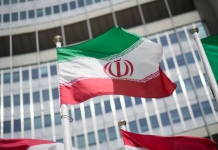BAKU: Armenian Prime Minister Nikol Pashinyan must finally sign and put into effect the necessary documents to establish new relations with Azerbaijan, Russia and Turkey, Russian political strategist, director of the Russian Institute for Contemporary State Development Dmitry Solonnikov told media.
“Proceeding from the history, a political crisis always broke out in the country after a defeat in war,” Solonnikov said. “There is such a situation in Armenia after the signing of an agreement on November 10, 2020 on the cessation of hostilities in Nagorno-Karabakh.”
Solonnikov emphasized that problems in a losing country are usually formed along two lines.
“Firstly, there are always political forces (more or less organized and united) that have acted and will continue to oppose the current government,” he said. “The leadership of any country, even the most successful leadership, has its domestic opponents.”
“Pashinyan was not such a successful and unequivocal leader of the country,” Solonnikov added. “He had problems, quite big problems, from the very beginning of his rule after coming to power amid the 2018 protests. The signing of a surrender agreement [on ceasefire and cessation of all hostilities in the Nagorno-Karabakh region] is always a great reason for opponents of the government to get even.”
“Secondly, defeat is always a big psychological shock for the population,” political strategist said.
“He was told all the time that everything would be perfect, that the combat effectiveness was high, the generals were talented, the soldiers were fearless, the fortifications were strong, etc. and suddenly everything fell apart,” Solonnikov said.
“Emotional actions are of a short-term nature,” political strategist said.
“If the coup does not occur during the first days and the leader of the country is not overthrown, new people do not come to rule the country, then the tension among the masses will subside and the political forces begin to adapt to the new reality. Such situation occurred in Armenia.”– Agencies



